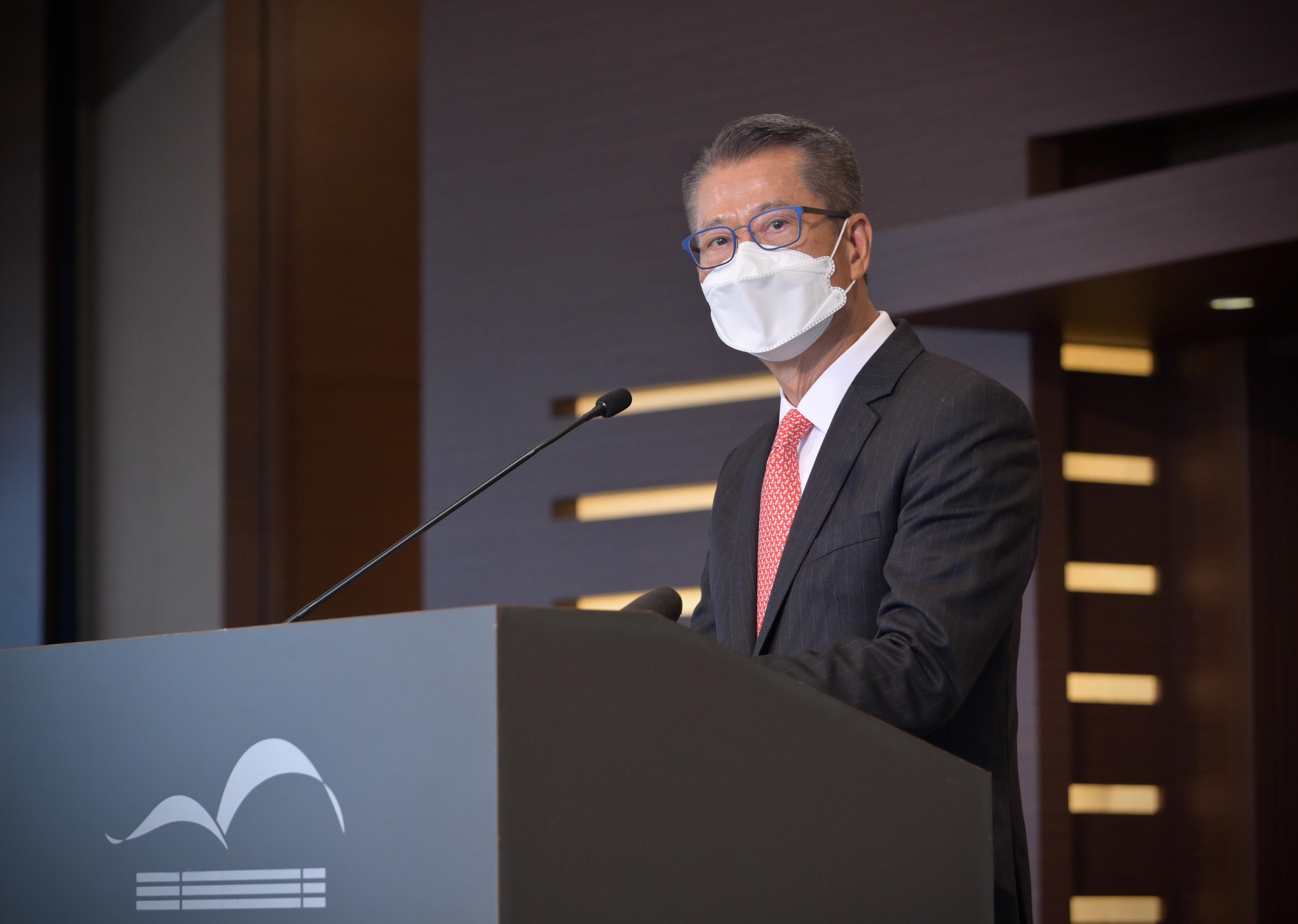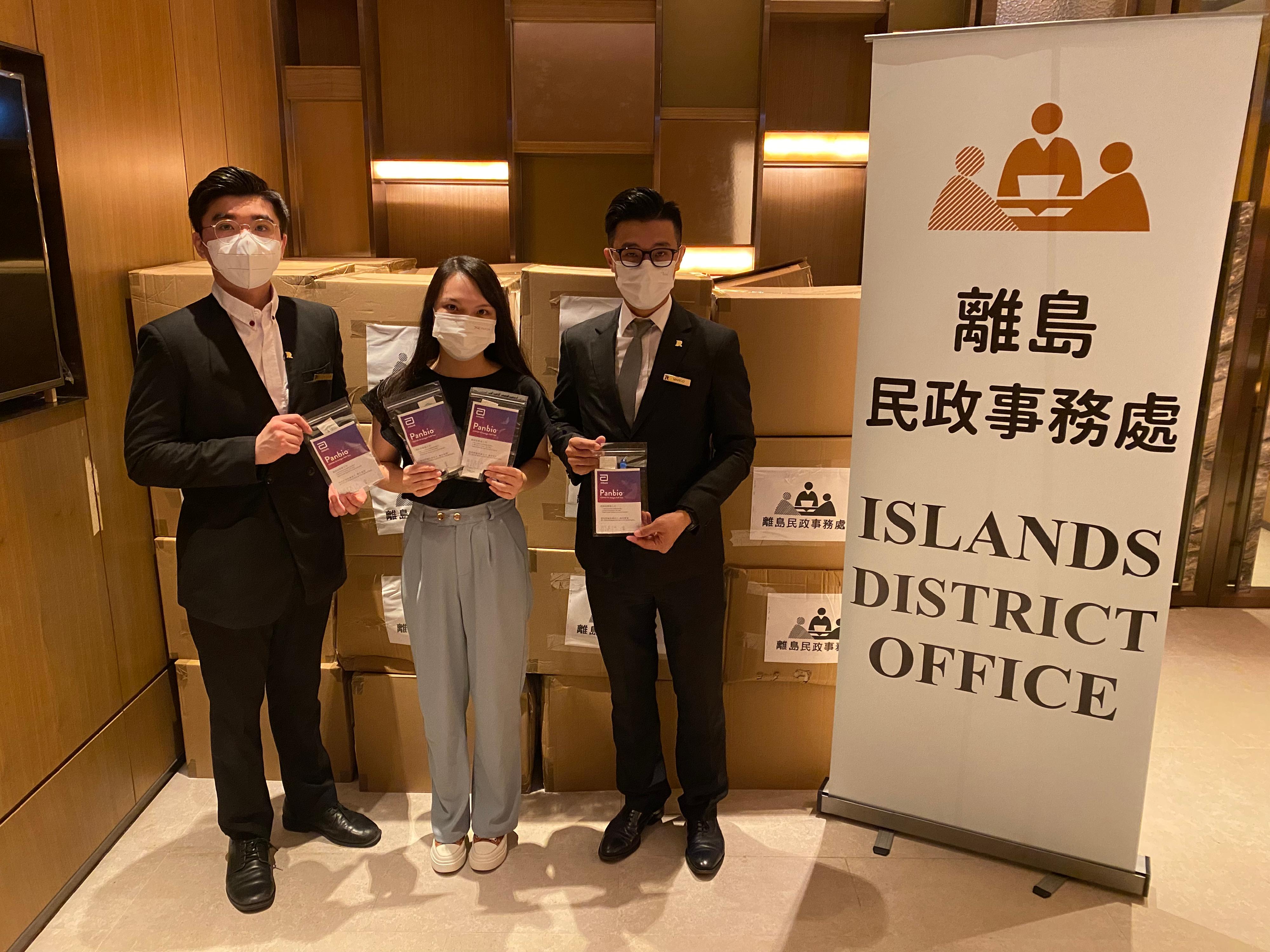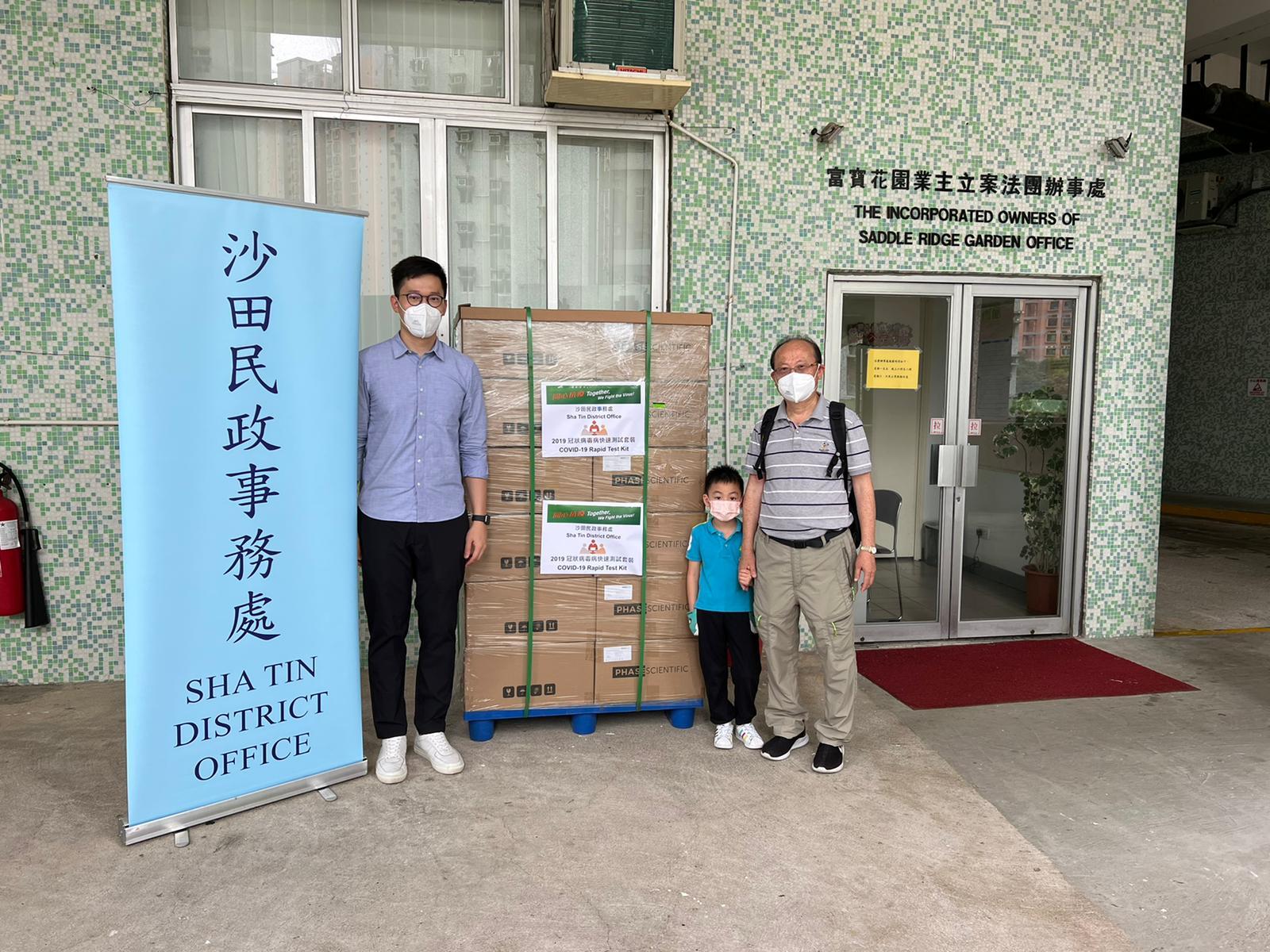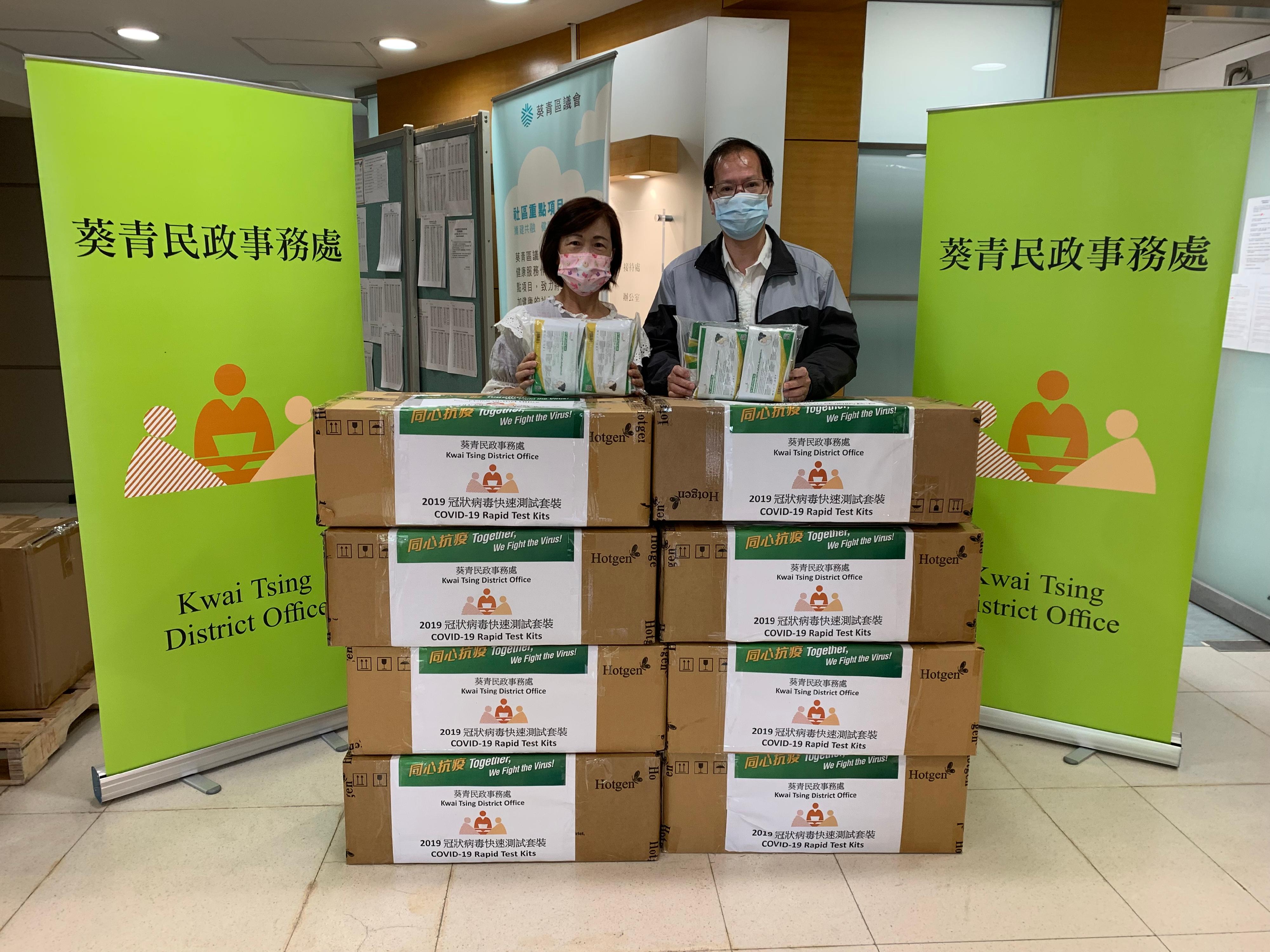Following is the speech by the Financial Secretary, Mr Paul Chan, at the Luncheon for the Vision 2030 for Rule of Law International Symposium today (May 26):
Teresa (Secretary for Justice, Ms Teresa Cheng, SC), Anthony (Chairman of the Asian Academy of International Law, Dr Anthony Neoh), distinguished guests, ladies and gentlemen,
Good afternoon. It’s a pleasure to be with you today, to have this welcome opportunity to speak in person to such a distinguished cross-section of our legal, financial, business and diplomatic communities.
The winds of change have blown hard for Hong Kong, and the world at large, these past few years. The continuing pandemic and geopolitical tensions have been disrupting the global economy, distressing the world at large.
The good news is that our strong showing comes despite the relentless volatility. Hong Kong’s economic growth in 2021 reached a cheering 6.3 per cent and, despite the adverse impact of the fifth wave of COVID attack, is expected to have a mild growth of 1 to 2 per cent this year.
The latest World Investment Report 2021, published by the United Nations Conference on Trade and Development, ranked Hong Kong the world’s third largest recipient of foreign direct investment in 2020, trailing only the United States and the Mainland.
In March this year, the Global Financial Centres Index again ranked Hong Kong the top financial centre in Asia and third in the world.
Allow me, for the next few minutes, to explain this report card – particularly what makes us unique, how we’re responding to external stresses, and why the future looks so promising – for Hong Kong and for all those who believe in Hong Kong.
Our uniqueness stems from the “one country, two systems” framework, which is the cornerstone for our economy, as for our community. Together with the rule of law and our formidable institutional strengths, they are defining the advantages that have long propelled Hong Kong’s resounding success. They include our independent judiciary; a market-oriented, globally centred business environment; robust infrastructure support; internationally aligned regulatory regimes; a free and open society; the unfettered flow of capital, people and information; a strong pool of talent; the simple and low tax regime; and our unique position in our country’s economic development strategies.
The end result is clear and compelling: Hong Kong flourishes as an international centre for finance, commerce and trade. We also continue to attract international corporations. And a global hub for investment and business.
The numbers bear that out, I’m pleased to say. The latest tally of business operations in Hong Kong with parent companies overseas, or in the Mainland, has risen to more than 9 000, while the number of start-ups in Hong Kong has climbed to over 3 700. Both are record highs.
Looking to the future, the National 14th Five-Year Plan sets out the long-range objectives of the country through the year 2035, and strategically affirms the role and positioning of Hong Kong in the overall development of our country, presenting opportunities in various areas of importance. That Plan expressly supports Hong Kong in consolidating and enhancing our status as an international financial, transport and trade centre, as well as a centre for international legal and dispute-resolution services in the Asia-Pacific region.
It also champions Hong Kong’s development in four emerging areas: as an international aviation hub and innovation and technology hub, as a regional intellectual property-trading centre and as a hub for arts and cultural exchange between the Mainland and the rest of the world.
In achieving these goals, Hong Kong will count on its singular role as a bridge between the Mainland and the rest of the world, while helping Mainland companies explore opportunity in international markets.
Our advantage here is unrivalled. Hong Kong is as national as it is international.
Let me elaborate using financial sector as an example, on how we thrive as one of the world’s major financial centres, as well as China’s international financial centre.
Hong Kong continues to be one of the major listing centres in the world. Last year, funds raised through initial public offerings (IPOs) reached over US$40 billion. Indeed, we have topped the world for seven times in the past 13 years in terms of IPO funding.
But there is no room for complacency. We have continuously been on the lookout for ways to enhance the competitiveness of our listing platform. A major move taken a few years back was to allow emerging and innovative enterprises with weighted voting rights structure as well as pre-revenue or pre-profit biotechnology companies to list in Hong Kong and providing facilitation for qualifying issuers to seek secondary listing in Hong Kong.
As at the end of April, a total of 74 companies have listed in Hong Kong taking advantage of this change, raising more than $580 billion, representing over 44 per cent of the total IPO funds raised during the same period. In fact, Hong Kong is also now the world’s second largest fundraising hub for biotechnology.
In January this year, we launched a listing regime for special purpose acquisition companies, providing a new alternative listing route in Hong Kong for emerging enterprises with potential.
We have also made preparation for “home-coming” China Concept Stock companies to return due to increased risks and uncertainties of listing in overseas markets. Key enhancements made to our listing regime include allowing Greater China companies which are not from innovative sectors to seek secondary listing in Hong Kong, and offering more flexibility to issuers seeking dual-primary listings. All these measures seek to increase our market liquidity and enhance the competitiveness of Hong Kong as a global financing platform.
Our asset- and wealth-management sector has also prospered in recent years. At the end of 2020, Hong Kong had US$4.5 trillion in assets under management, up 21 per cent year on year. More reassuring, nearly two-thirds of those assets came from non-local investors.
Our vision is clear: boosting Hong Kong’s status as an international asset- and wealth-management centre. We have been working to realise this in three discrete ways.
The first was modernisation of our fund structure regime. The latest move was the introduction of the limited partnership fund structure in August 2020. It has been very well received by the sector, with more than 480 funds established over the past year or so.
The second was offering attractive tax concessions, including introducing the fund-level tax exemption regime, and exempting carried interest payable by private equity funds operating in Hong Kong.
The third was the establishment of the fund re-domiciliation regime last year, designed to attract foreign funds to Hong Kong, taking good advantage of onshoring of funds from traditional offshore hubs.
A recent key milestone in the development of our asset- and wealth-management sector was the launching of the Cross-boundary Wealth Management Connect Scheme in the Guangdong-Hong Kong-Macao Greater Bay Area last October. It opens up a huge market for Hong Kong’s financial services providers, giving us direct access to the growing number of high-net-worth individuals in one of the most affluent economic regions of the Mainland. Good news for Hong Kong. Good news for the companies and economies that work with us.
Opportunities also flow from mutual market access between the Mainland and Hong Kong. Over the years, various Connect schemes have come into operation, including Stock Connect, Bond Connect and the mutual recognition of funds. The average trading volume of the Stock Connect transactions last year reached about RMB160 billion a day, an increase of 40 per cent over the previous year. On the other hand, the number of Mainland bonds held by overseas institutions through the Northbound Bond Connect and other channels exceeded RMB3.7 trillion by end of April. Last October, we further expanded our Connect scheme with the Mainland by launching the Southbound Trading under Bond Connect.
On the equities side, we expect the ETF Connect to get going very soon. That will mark another milestone in the integration of the capital markets of the Mainland and Hong Kong.
With the promise of mutual market access programmes, investor demand for risk-management solutions is also on the rise. In response to that, HKEX (Hong Kong Exchanges and Clearing Limited) launched the MSCI China A50 Connect Index futures contract last year. It’s an effective risk-management tool for offshore investors in the A-shares market, enabling additional investment flow while expanding risk-management products in Hong Kong.
Meanwhile, Hong Kong continues to bolster its status as the largest global offshore Renminbi (RMB) business hub. Hong Kong counts the largest pool of Renminbi liquidity in the world outside the Mainland, amounting to over RMB800 billion. As the most important offshore Renminbi clearing hub, Hong Kong’s banks handle about 70 per cent of global offshore Renminbi payments.
Hong Kong is also an important Renminbi financing centre, hosting the largest offshore Renminbi bond market. The rising issuance of offshore Renminbi bonds in Hong Kong underlines our role as the Mainland’s major capital-raising gateway. Last year, the Ministry of Finance issued Renminbi sovereign bonds totalling RMB20 billion in Hong Kong. Last October, the Shenzhen Government also issued offshore Renminbi municipal government bonds here. This further enriches the offshore Renminbi product range and showcases Hong Kong as the premier platform facilitating the Mainland to go global.
Going forward, China’s economy will continue to expand and develop under the Belt and Road Initiative and the new development strategy of “dual circulation”, which emphasises the domestic and external markets reinforcing each other. As such, the demand of offshore using, holding and investing of RMB by Mainland or foreign enterprises, financial or other institutions is expected to substantially increase.
As the world’s largest offshore RMB business hub, Hong Kong is more than a reservoir for providing offshore RMB funds, but has the capacity and capability to develop a vibrant “offshore ecosystem” for RMB. Hong Kong is equipped to provide more offshore RMB-denominated investment tools and channels, as well as treasury management products such as interest-rate risk and exchange-rate risk management instruments. These will enable the development of a more comprehensive and active offshore RMB market in Hong Kong, facilitating the further internationalisation of RMB, yet providing us with tremendous business opportunities.
Environmental, social and governance, or ESG, is another fast emerging trend reshaping the global economy and the financial sector. Hong Kong’s financial future will also be built on green and sustainable finance.
By leveraging our advantages as an international financial centre, we can facilitate the matching of international capital with quality green projects, contributing proactively to our country’s pursuit of its “3060 Carbon Emission Targets” as well as our own carbon neutrality target by 2050.
Since 2018, the HKSAR Government has successfully issued a total of more than US$7 billion equivalent of green bonds targeting global institutional investors, including the issuance of a 30-year US dollar-denominated green bond and a 20-year euro-denominated green bond, both of which are the first issuance among Asian governments. This year, we will continue to issue green bonds totalling about US$4.5 billion or equivalent.
The successful issuance of RMB green bonds by the Shenzhen Municipal Government in Hong Kong tells a good story of how Mainland cities could make use of our market for green financing. This would further strengthen Hong Kong’s functions as an offshore RMB hub and a green financial centre.
Worth mentioning here is that we have always kept in mind the importance of raising public awareness of green economy, as well as sharing with the people the fruits of market developments. This is why we issued our first-ever retail green bonds just last month, with an issue size of HK$20 billion.
The inaugural retail government green bond has been well received. This largest retail green bond issuance across the globe thus far has broadened the variety of green and sustainable financial products in Hong Kong, reinforcing our position as a premier green finance hub both regionally and internationally.
Financial markets are fast-changing and it is of utmost importance for us to ensure the stability of our financial system.
In short, Hong Kong’s financial system is operating in an orderly manner, and our Linked Exchange Rate System and other significant financial aspects have been functioning as they should. And as you would expect of one of the world’s major financial centres.
Our banking system, too, has remained robust. The capital adequacy ratio and average liquidity coverage ratio of our major banks exceeded 20 per cent and 150 per cent, respectively, at the end of 2021. Both are well above international regulatory standards.
Our foreign reserve at US$460 billion is equivalent to about 130 per cent of our GDP, ensuring that our financial market has the strong buffers and resilience necessary to counter global shocks.
The report of the International Monetary Fund (IMF) Staff Mission published in January, which was issued following IMF’s regular assessment on Hong Kong, expressed compliments on our economic achievement last year and reiterated its recognition of Hong Kong’s status as a major international financial centre. The IMF also pointed out that Hong Kong’s financial sector had continued to expand under a robust supervisory framework even during the pandemic. Our Linked Exchange Rate System continued to operate smoothly and demonstrate resilience, providing effective support to Hong Kong’s financial stability.
Looking forward, economies in Asia, particularly the Mainland economy, will continue to be the engine of global economic growth. Hong Kong will continue to play our unique roles as a gateway, a springboard and an intermediary, and actively integrate into the new overall development of our country.
I’m confident that Hong Kong will continue to flourish. That’s thanks largely to the National 14th Five-Year Plan, which supports our continuing growth as an international financial centre and our aspiration to become an international innovation and technology hub. Thanks, also, to the implementation of the National Security Law, which has returned stability and confidence to our society and economy, as well as the enhancements to our electoral system, which has put an end to the previous chaos and political impasse in Hong Kong.
The return of stability and safety has allowed us to pursue a variety of promising opportunities. We are now provided with the maximum safeguards to reshape the landscape of good and effective governance and propel Hong Kong into a new development phase, where we can focus on the future – on building a flourishing economy, and a more cohesive community, for our city.
Ladies and gentlemen, I’m grateful for this opportunity to share with you my confidence in the future of Hong Kong and Hong Kong’s long-term competitiveness. May I wish you all the best of health and business in the year to come. Thank you.






